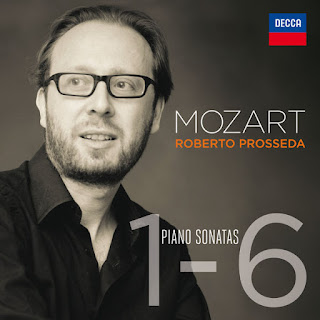Artistic brilliance and innovative programming are the trademarks
with which Nils Mönkemeyer has rapidly made his name as one of the 'most
internationally successful violists' (Harald Eggebrecht, Süddeutsche
Zeitung), and dramatically raised the profile of his instrument.
Under his exclusive contract with Sony Classical, Mönkemeyer has
released numerous CDs over the past years, all of which have won
critical acclaim and prestigious awards. His programmes run the gamut
from rediscoveries and first recordings of original 18th century viola
literature, to contemporary repertoire and arrangements of his own.
Mönkemeyer has been a professor at the University of Music and
Performing Arts in Munich since 2011 - the same institution at which he
himself studied with Hariolf Schlichtig. Previous tenures include a
two-year professorship at the Carl Maria von Weber University of Music
in Dresden, and an assistant professorship at the Reina Sofia College of
Music in Madrid.
Nils Mönkemeyer works together with conductors such as Mario Venzago,
Markus Stenz, Sylvain Cambreling, Mark Minkowski, Michail Jurowski,
Christopher Hogwood, Michael Sanderling, Karl-Heinz Steffens and Simone
Young, performing internationally in London's Wigmore Hall, Vienna's
Musikverein, Brussel's Bozar, Berlin and Cologne Philharmonie, Leipzig
Gewandhaus, Hamburg Laeiszhalle, Frankfurt Alte Oper, and in concert
halls in Munich, Dresden, Baden-Baden, Dusseldorf, Stuttgart, Bremen,
not to mention countless festival venues. He is currently a '360º
artist' at the Mecklenburg-Vorpommern Festival and artist in residence
of both the Echternach International Festival and the Heidelberg
Philharmonic Orchestra.
In the 2015/2016 season Mönkemeyer will perform with the Zurich
Tonhalle Orchestra, the Helsinki Philharmonic Orchestra, the Musiciens
du Louvre, the MDR Leipzig Radio Symphony Orchestra, the NDR
Radiophilharmonie in Hannover, the Weimar Staatskapelle, the Hamburg
Philharmonic, the Dusseldorf Symphony Orchestra and the Berlin
Barocksolisten.
His various chamber ensembles, such as
his trio with Sabine Meyer and William Youn, the Julia Fischer Quartet, his duo with William Youn and
his Barroco Español project, are guests at numerous festivals this
season: Menuhin Festival Gstaad, Mozartwoche Salzburg, Schubertiade
Hohenems, Heidelberger Frühling, Kissinger Sommer, Musikfest Stuttgart,
Audi Sommerkonzerte, Schleswig Holstein Musikfestival, and the
Festspiele Mecklenburg Vorpommern, Further chamber concerts will take
him to Taiwan, Korea and Benelux, and to concert halls such as the
Bremen Glocke, Dusseldorf Tonhalle, Gothenburg Konserthuset, Amsterdam
Concertgebouw, Zurich Tonhalle and Berlin Philharmonie.
 The French mezzo-soprano, Karine Deshayes, obtained a degree in
Literature and Music at the Paris Sorbonne University. She then studied
at the Conservatoire National Supérieur de Musique (Paris) with Mireille
Alcantara. She has explored the baroque repertoire with specialists
such as Emmanuelle Haïm, Christophe Rousset, William Christie, Il Seminario Musicale and Les Paladins.
The French mezzo-soprano, Karine Deshayes, obtained a degree in
Literature and Music at the Paris Sorbonne University. She then studied
at the Conservatoire National Supérieur de Musique (Paris) with Mireille
Alcantara. She has explored the baroque repertoire with specialists
such as Emmanuelle Haïm, Christophe Rousset, William Christie, Il Seminario Musicale and Les Paladins.






























